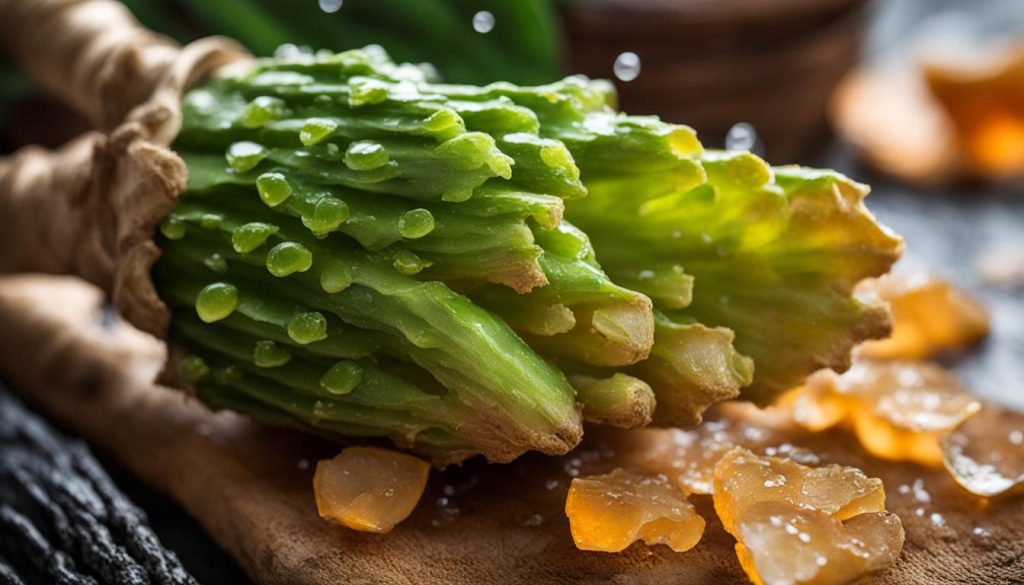Are you tired of dealing with a persistent cough and the discomfort of excess phlegm? Look no further! In this article, I will share some effective natural remedies and techniques to help you eliminate phlegm and find relief from your cough.
Phlegm can be stubborn and irritating, but there are natural ways to address this issue. By incorporating these remedies into your daily routine, you may experience significant improvement in your symptoms.
From time-tested herbal remedies to simple home remedies, there are several options to consider. Let’s explore some of these natural remedies for phlegm removal and discover what works best for you.
Natural Remedy to Remove Phlegm
- There are effective natural remedies to help remove phlegm and soothe your cough.
- Some of the methods include herbal remedies, home remedies, and lifestyle changes.
- These remedies can provide relief and improve your overall respiratory health.
- Always consult a healthcare professional if your symptoms persist or worsen.
- Remember to stay hydrated and maintain a healthy lifestyle to support your body’s natural healing processes.
Honey: A Promising Remedy for Cough and Phlegm
When it comes to finding natural remedies for cough and phlegm, honey has proven to be a promising option. It has been found to effectively relieve coughs and reduce the need for antibiotics. Studies have shown that honey can suppress coughs and provide relief similar to cough suppressants that contain chemical ingredients.
One of the advantages of using honey as a remedy is its versatility. It can be consumed directly or added to hot drinks, such as herbal tea, to soothe the throat and reduce phlegm. The sweet and viscous nature of honey helps to coat the throat, providing a soothing effect that can reduce coughing fits and promote comfort.
Furthermore, honey offers natural properties that can support the body’s immune system and fight off respiratory infections. It contains antioxidants and antimicrobial compounds that can help alleviate symptoms associated with cough and phlegm.
It’s important to note that honey should not be given to children under the age of one due to the potential risk of botulism. Additionally, it’s always advisable to consult with a healthcare professional, especially if symptoms persist or worsen.
Honey can be a valuable natural cough and phlegm remedy. Its effectiveness and ease of use make it a popular choice for individuals looking for a gentle yet effective solution. Whether consumed directly or added to warm beverages, honey can help provide relief and support overall respiratory health.
Ginger: Anti-inflammatory Properties to Ease Cough and Phlegm
Ginger is a powerful natural remedy that has been used for centuries to soothe various ailments, including coughs and phlegm. It contains anti-inflammatory compounds that can help alleviate the symptoms of a dry or asthmatic cough and may assist in reducing phlegm.
While further research is warranted to fully understand ginger’s potential benefits, traditional medicine has long recognized its effectiveness in treating respiratory issues. Incorporating ginger into your daily routine can offer relief from troublesome coughs and the discomfort of excess phlegm.
One way to enjoy the benefits of ginger is by adding it to your meals. Whether grated, sliced, or used as a powdered spice, ginger can lend a warm and aromatic flavor to a variety of dishes. Additionally, drinking ginger tea can provide soothing relief for cough and phlegm.
To prepare ginger tea, simply steep fresh ginger slices or grated ginger in hot water for a few minutes. You can enhance the flavor by adding a squeeze of lemon or a dollop of honey. Sip the warm tea slowly to experience the potential anti-inflammatory effects of ginger on your cough and phlegm.

Including ginger in your diet or sipping on ginger tea can harness the natural anti-inflammatory properties of this potent herb, offering relief from cough and phlegm. Remember, if your symptoms persist or worsen, it’s crucial to seek advice from a healthcare professional for proper evaluation and guidance.
Hot Fluids: Moisturize the Airways and Relieve Cough and Phlegm
When it comes to finding relief from cough and phlegm, hot fluids can be your go-to natural remedy. Drinking warm water or hot beverages can offer comfort and help alleviate symptoms associated with cough, runny nose, and congestion.
Hot fluids have a moisturizing effect on the airways, providing a soothing sensation to the throat and reducing irritation. They can also help loosen mucus, making it easier to expel. Whether you prefer a comforting cup of herbal tea, a steamy bowl of chicken soup, or a soothing glass of warm lemon water, hot fluids can offer a natural and effective way to relieve cough and phlegm.
Hot beverages like herbal teas are especially beneficial as they often contain ingredients known for their healing properties. For example, herbal teas infused with ginger or chamomile can provide additional relief due to their anti-inflammatory and calming effects. Just make sure to avoid caffeinated beverages, as they can contribute to dehydration, which can exacerbate cough and phlegm.

Steam: Clear Mucus and Ease Wet Cough
In addition to honey, ginger, and hot fluids, steam inhalation is another natural remedy that can help alleviate a wet cough that produces mucus or phlegm. Steam inhalation works by reducing congestion in the airways and loosening mucus, making it easier to expel.
To experience the benefits of steam, you can take a hot shower or bath, allowing the steam to fill the bathroom. Alternatively, you can use a steam bowl by filling a large bowl with hot water and adding a few drops of essential oils like eucalyptus or rosemary. Lean over the bowl, cover your head with a towel, and inhale the steam for around 10 minutes.
Please note that while steam inhalation can be effective for many individuals, its effectiveness may vary from person to person. If your symptoms persist or worsen, it’s important to consult a healthcare professional for further evaluation and guidance.
Conclusion
If you’re looking for natural remedies to relieve cough and eliminate phlegm, there are several options available. Honey, ginger, hot fluids, and steam are just a few of the holistic approaches that can offer relief. These remedies can easily be incorporated into your daily routine, providing a gentle and effective way to address your symptoms.
However, it’s important to remember that everyone’s body is different, and what works for one person may not work for another. If your cough and phlegm persist or worsen, it’s crucial to consult a healthcare professional for further guidance and evaluation.
By embracing these natural remedies, you can take a proactive approach to managing your symptoms and promoting overall wellness. Soothe your cough and eliminate phlegm through the power of natural solutions, and enjoy a more comfortable and healthier life.
FAQ
What are some natural remedies to remove phlegm?
Some natural remedies to remove phlegm include honey, ginger, hot fluids, steam, and marshmallow root. These remedies have shown promising results in relieving coughs and reducing phlegm.
How does honey help in reducing phlegm?
Honey has been found to be effective in relieving coughs and reducing the need for antibiotics. It can suppress coughs and provide relief similar to cough suppressants. Honey can be consumed directly or added to hot drinks like herbal tea to soothe the throat and reduce phlegm.
What are the benefits of ginger in easing cough and phlegm?
Ginger has anti-inflammatory properties that can ease a dry or asthmatic cough and may help reduce phlegm. While more research is needed, ginger has been used in traditional medicine for its potential benefits in treating coughs and respiratory issues. Adding ginger to dishes or drinking ginger tea can provide relief from cough and phlegm.
How do hot fluids help in relieving cough and phlegm?
Drinking hot fluids like warm water or hot beverages can provide relief from cough, runny nose, and congestion. They moisturize the airways, soothe the throat, and alleviate symptoms associated with cough and phlegm. Hot fluids can be particularly beneficial for people with cold or flu symptoms.
How does steam inhalation help in clearing mucus and relieving wet cough?
Steam inhalation can improve a wet cough that produces mucus or phlegm. Taking a hot shower or bath, or using a steam bowl with essential oils like eucalyptus or rosemary can reduce congestion and loosen mucus. However, the effectiveness of steam inhalation may vary from person to person.
Are natural remedies the only solution for phlegm relief?
Natural remedies such as honey, ginger, hot fluids, and steam offer a holistic approach to phlegm relief. However, it’s essential to consult a healthcare professional if cough and phlegm persist or worsen.




